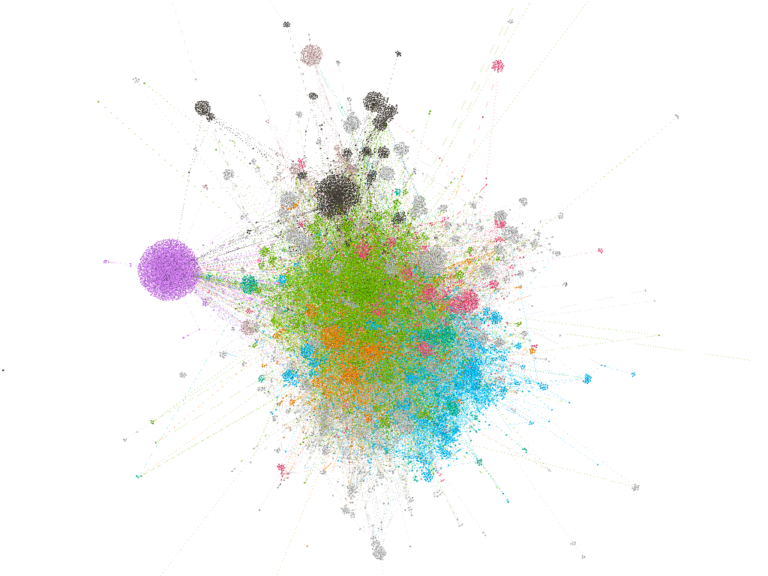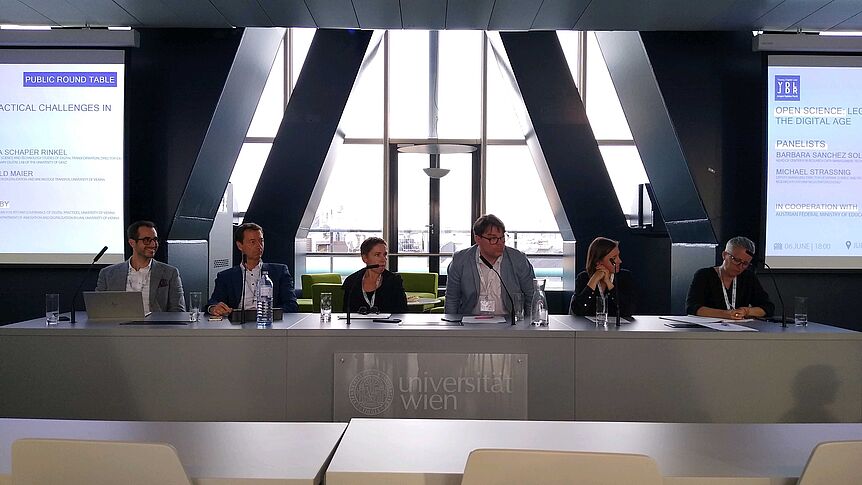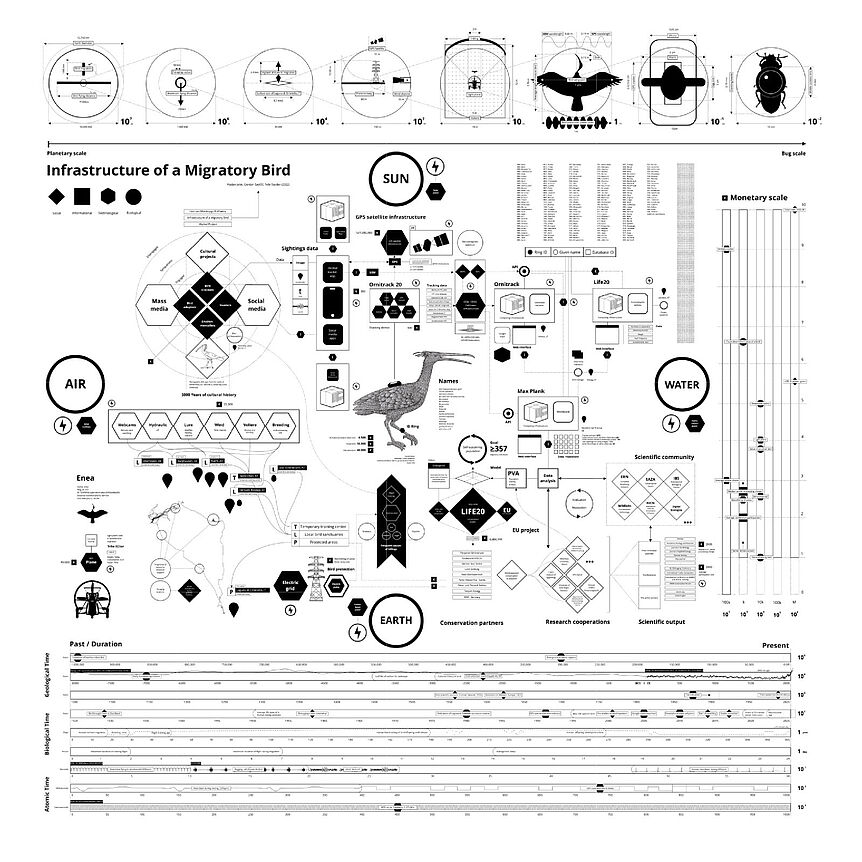DigiGov Blog

DigiGov Blog
Let us share some of our thoughts on the governance of digital practices with you. On this page, you will find blog posts written about acitivities and publications of the platform.
Publications by our platform members
Zeige Ergebnisse 51 - 75 von 149
2022
Vadrot, A., Ruiz Rodriguez, S. C., Brogat, E., Dunshirn, P., Langlet, A., Tessnow-von Wysocki, I., & Wanneau, K. (2022). Towards a reflexive, policy-relevant and engaged ocean science for the UN decade: A social science research agenda. Earth System Governance, 14, 1-8. Artikel 100150. https://doi.org/10.1016/j.esg.2022.100150
Prainsack, B., El-Sayed, S., Forgó, N., Szoszkiewicz, Ł., & Baumer, P. (2022). White Paper: Data Solidarity. The Lancet & Financial Times Commission. https://www.governinghealthfutures2030.org/wp-content/uploads/2022/12/DataSolidarity.pdf
Prainsack, B., El-Sayed, S., Forgó, N., Szoszkiewicz, Ł., & Baumer, P. (2022). Data solidarity: a blueprint for governing health futures. The Lancet. Digital Health, 4(11), e773-e774. https://doi.org/10.1016/S2589-7500(22)00189-3
Prainsack, B., & Forgo, N. (2022). Why paying individual people for their health data is a bad idea: Comment. Nature Medicine, 28(10), 1989-1991. https://doi.org/10.1038/s41591-022-01955-4
Barud, K., Wagner, M.-C., & Forgó, N. (2022). Active Informed Consent to Boost the Application of Machine Learning in Medicine. https://doi.org/10.48550/arXiv.2210.08987
Paspalj, F., & Forgó, N. (2022). Die Umsetzung der Urheberrechtsrichtlinie in Österreich. in E. Hoffberger-Pippan, R. Ladeck, & P. Ivankovics (Hrsg.), Digitalisierung und Recht: Jahrbuch 22 (S. 53-69).
Vadrot, A. B. M., & Ruiz Rodríguez, S. C. (2022). Digital Multilateralism in Practice: Extending Critical Policy Ethnography to Digital Negotiation Sites. International Studies Quarterly, 66(3), Artikel sqac051. https://doi.org/10.1093/isq/sqac051
Mayer, K., Schürz, S., Kieslinger, B., & Schaefer, T. (2022). Editorial: Participatory Evaluation and Impact Assessment in Citizen Science. Plattform Forschungs- und Technologieevaluierung , (54), 5-9. https://doi.org/10.22163/fteval.2022.566
Forgó, N., & Wittmann-Tiwald, M. (2022). Schlussbericht der Abteilung „Digitalisierung des Rechts“. 21. Österreichischer Juristentag, Wien , Österreich.
Henne, T., & Gstrein, O. J. (2022). Governing the ‘Datafied’ School: Bridging the Divergence between Universal Education and Student Autonomy. in O. J. Gstrein, & A. Zwitter (Hrsg.), Handbook on the Politics and Governance of Big Data and Artificial Intelligence - Elgar Handbooks in Political Science series Vorzeitige Online-Publikation. https://papers.ssrn.com/sol3/papers.cfm?abstract_id=4147780
Steindl, E. (2022). Does the European Data Protection Framework Adequately Protect our Emotions? Emotion Tech in light of the Draft AI Act and its Interplay with the GDPR. European Data Protection Law Review, 8(2), 311-319. https://doi.org/10.21552/edpl/2022/2/20
Prainsack, B., & Steindl, E. (2022). Legal and Ethical Aspects of Machine Learning: Who Owns the Data? in P. Veit-Haibach, & K. Herrmann (Hrsg.), Artificial Intelligence/Machine Learning in Nuclear Medicine and Hybrid Imaging (S. 191-202). Springer. https://doi.org/10.1007/978-3-031-00119-2_14
Paul, K. T., & Haddad, C. (2022). The Pandemic as we Know It: A policy studies perspective on ignorance and nonknowledge in COVID-19 governance. in M. Gross, & L. McGoey (Hrsg.), Routledge International Handbook of Ignorance Studies (2 Aufl., S. 221-233). Routledge. https://doi.org/10.4324/9781003100607-25
Bettiol, E., Bomze, I., Létocart, L., Rinaldi, F., & Traversi, E. (2022). Mining for diamonds: Matrix generation algorithms for binary quadratically constrained quadratic problems. Computers and Operations Research, 142, Artikel 105735. https://doi.org/10.1016/j.cor.2022.105735
Bomze, I., Gabl, M., Maggioni, F., & Pflug, G. (2022). Two-stage stochastic standard quadratic optimization. European Journal of Operational Research, 299(1), 21-34. https://doi.org/10.1016/j.ejor.2021.10.056
Bomze, I., & Gabl, M. (2022). Uncertainty preferences in robust mixed-integer linear optimization with endogenous uncertainty. SIAM Journal on Optimization, 32(1), 292-318. https://doi.org/10.1137/20M1355422
Forgó, N., & Skorjanc, Z. (2022). Urh-Nov 2021: Ausgewählte Fragen zur Umsetzung der Online-SatKab-RL: Anmerkungen zum Weitersenderegime und zum Rechteerwerb. Ecolex: Fachzeitschrift für Wirtschaftsrecht, (2), 149-152. Artikel 104.
Forgó, N., & Skorjanc, Z. (2022). Zum Umfang der Privatkopieausnahme bei Betrieb eines Online-Videorekorders. Kommunikation & Recht, 2022(3), 172-175. https://online.ruw.de/suche/kur/2022/03
Bomze, I., Rinaldi, F., & Zeffiro, D. (2022). Fast cluster detection in networks by first-order optimization. SIAM Journal on Mathematics of Data Science, 4(1), 285-305. https://doi.org/10.1137/21M1408658
Prainsack, B. (2022). The Roots of Neglect: Towards a Sociology of Non-Imagination. Tecnoscienza, 13(2), 13-34.
Langlet, A., Wanneau, K., Dunshirn, P., Ruiz Rodriguez, S. C., Tessnow-von Wysocki, I., & Vadrot, A. (2022). A matter of time: the impacts of Covid-19 on marine biodiversity negotiations. Négociations, 2022(37), 39-65.
Felt, U., Öchsner, S., & Rae, R. (2022). Citizens in Search for a Place in the Digital Health Data Space: A Case Study. in B. Pfeifer, & M. Baumgartner (Hrsg.), dHealth 2022 - Proceedings of the 16th Health Informatics Meets Digital Health Conference (Band 293, S. 127-136) https://doi.org/10.3233/SHTI220359
Mayer, K., & Shah, E. I. (2022). Human Sensors. in Sensing In/Security (S. 206-215). Mattering Press. https://doi.org/10.28938/9781912729050
Lucivero, F., Marelli, L., Hangel, N., Zimmermann, B. M., Prainsack, B., Galasso, I., Horn, R., Kieslich, K., Lanzing, M., Lievevrouw, E., Ongolly, F., Samuel, G., Sharon, T., Siffels, L., Stendahl, E., & Van Hoyweghen, I. (2022). Normative positions towards COVID-19 contact-tracing apps: findings from a large-scale qualitative study in nine European countries. Critical Public Health, 32(1), 5-18. https://doi.org/10.1080/09581596.2021.1925634
Mayer, K. (2022). Open Access im Wandel: Infrastrukturen, Monitoring und Governance als zentrale Elemente einer erfolgreichen Transformation. . BMBWF. The fteval Journal for Research and Technology Policy Evaluation https://doi.org/10.22163/fteval.2022.533
Zeige Ergebnisse 51 - 75 von 149






